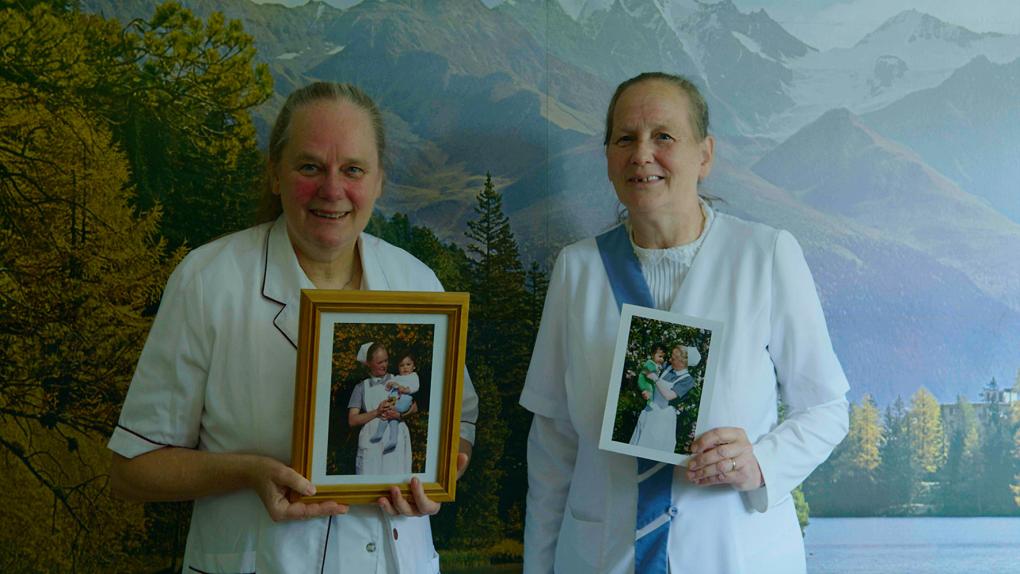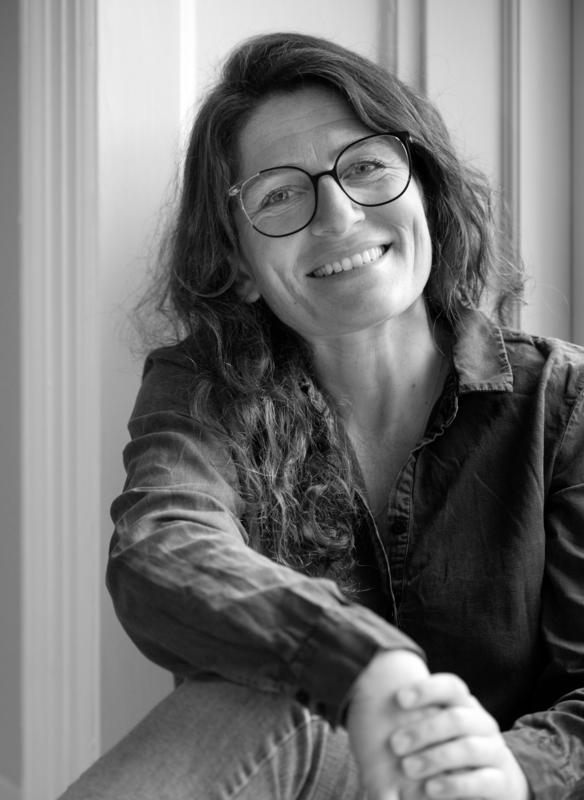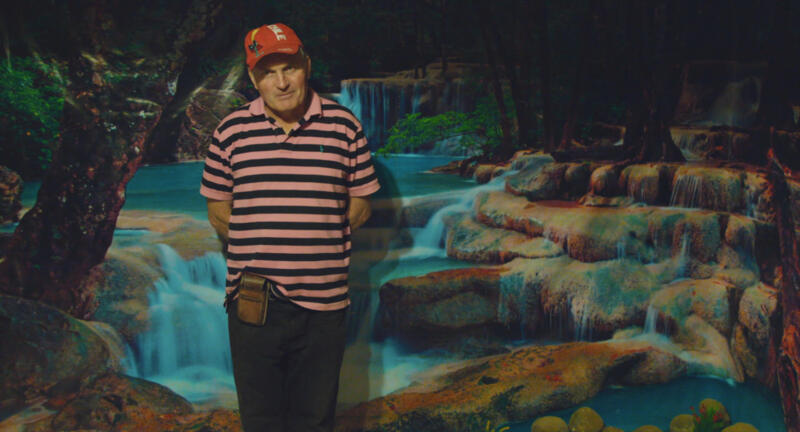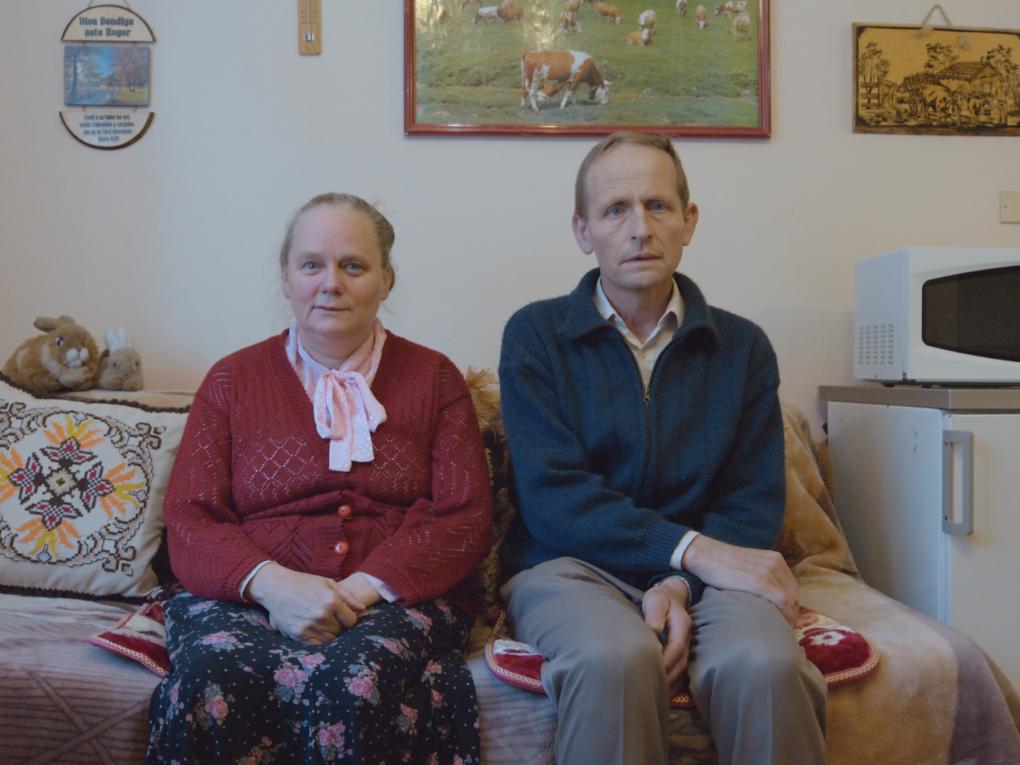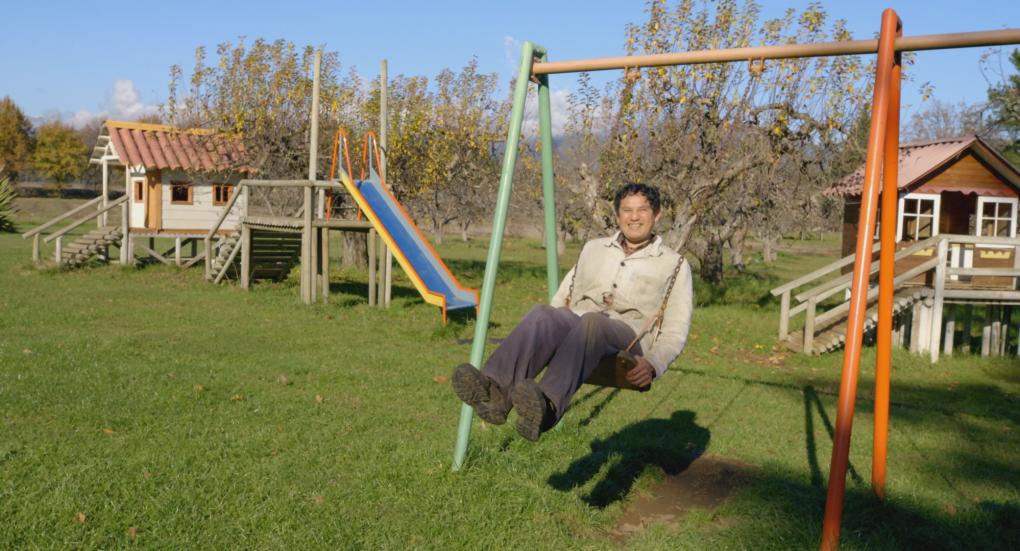
When Marianne Hougen-Moraga and Estephan Wagner were children, they heard people talk about Colonia Dignidad (Dignity Colony). Hougen-Moraga was born in Denmark after her mother fled Pinochet’s dictatorship in 1973. When she asked about the colony, the answer was always the same: "We don’t talk about that."
Wagner, for his part, grew up in a right-wing family as a member of Chile’s German minority. Planning trips to the country’s southern regions, his family always made sure to schedule a stop at one of the colony’s restaurants to celebrate German culture.
"I encountered a world that was very beautiful and German Romantic. When I was a kid, I always associated the colony with something positive. But as I grew up, I saw that the reality was a lot more complex than what my family had told me," Wagner says.
Under the quaint surface, the colony, which today goes by the name of Villa Bavaria (The Bavarian Village), hides a dark past dating back 59 years to the time when the German missionary Paul Schäfer set up the colony as a totalitarian sect, where child sex abuse, torture and other acts of terror became commonplace. To this day, its history casts a long shadow across the sunny colony.
Both victim and abuser
The two co-directors portray this conflict in 'Songs of Repression', which was recently selected for IDFA in Amsterdam after winning the top prize as well as the Politiken special award at CPH:DOX in Copenhagen last spring.
But the film is not about Schäfer, who fled the colony in 1997 to avoid child sex abuse charges and died in prison in 2010. Instead, the focus is on the 120 or so people who still live in the colony and their struggles with the trauma from a past that continues to emanate from every building and person.
"When we moved to Chile to start work on the film, we were very open about our intention to make a film that would allow the inhabitants of the colony to put forth their perspectives and opinions, but also that we weren’t looking to paint a rosy picture of the colony," Hougen-Moraga says.
Many newspaper and TV reports have been made about this place, but according to the two directors, they all have one thing in common: they portray the villagers either as victims of Schäfer’s rule or as monsters and enablers.
"Our basic thought from the beginning was that we wanted to nuance that image and trouble the polarised views we were exposed to growing up in a leftist and a rightist family, respectively," Wagner says.
"We wanted to approach the subject without prejudging anyone. The reality is a lot more complex than 'good guys' and 'bad guys'. Here, everyone is a victim and an abuser at the same time."
The film shows us how the pain of the past has left a heavy mark on the villagers, who are consumed by trauma.
One smiling villager on a swing relates how he was molested, seemingly trapped in the prison of his childhood. A married couple proudly discuss the values they were raised to follow under Schäfer, even as the husband’s grimacing face tells a different story. Another villager, who shows tourists around the colony, asserts that the dark past is gone and buried. He can even laugh about it now, he says, but it’s not easy to believe him.
"It was interesting for us to witness the strategies people use to move on after going through something so violent," Hougen-Moraga says. "One strategy here is to repress the past: 'Let’s be happy and think ahead.'"
Opening a dialogue
Though the Covid pandemic prevented the two directors from going on the road with their film, it has still been shown in a number of places. After winning at CPH:DOX, the film was screened across Europe and in Australia and New York. A few weeks ago, 'Songs of Repression' finally premiered in Chile, at the country’s most important film festival, Festival de Cine de Valdivia, where it won the award for best Chilean film.
"The screening coincided with the Chilean election on the biggest constitutional change since the days of Pinochet, so they warned us in advance that the film would probably not get a lot of coverage now that the election and the coronavirus were dominating the headlines," Hougen-Moraga says.
"As it turned out, however, we were interviewed by two of Chile’s biggest papers and radio stations, and got rave reviews. We hope this coverage will create more dialogue in Chile and get a reconciliation process going in the colony," she says.
The duo witnessed the first step in that direction when they screened their film to the inhabitants of the colony before the world premiere at CPH:DOX in March. For the first time, the villagers were confronted with their internal division and contradiction which run through the film like a cold undercurrent.
"Several people told us that they were seeing themselves from outside for the first time. And that it was only then they realised how much pain they were carrying," Wagner says.

Hougen-Moraga continues, "A person at the colony had served a short jail sentence for taking part in the torture of political prisoners. He got up after the screening and said that he now realized that he had inflicted pain not only on the political prisoners but on several of his fellow villagers as well. He offered to talk about it with anyone who was interested. That was huge."
What role do you think your film can play in a time when right-wing movements and totalitarian regimes are on the rise again?
Hougen-Moraga: "We hope the film can be a step in the direction of exploding the black-and-white discourse we are seeing in the world right now and remind us to be critical about what we see and hear. And we hope the film can help push for a reckoning with post-totalitarian systems to make sure they don’t become fascist again."
Wagner: "The colony in a way is a microcosm of Chile overall, which recently voted to change its constitution, which dates back to the time of Pinochet. Like the colony, the nation remains deeply anchored in the past because there still has not been a reconciliation process, even though the dictatorship ended 30 years ago. We hope our film can open a dialogue about that."
Hougen-Moraga: "Because we can both mirror ourselves in these people and distance ourselves from them, we hope the film will trigger aftershocks in the audience, so that they don’t just leave the cinema relieved that the good guys won, but keep thinking about these issues."
